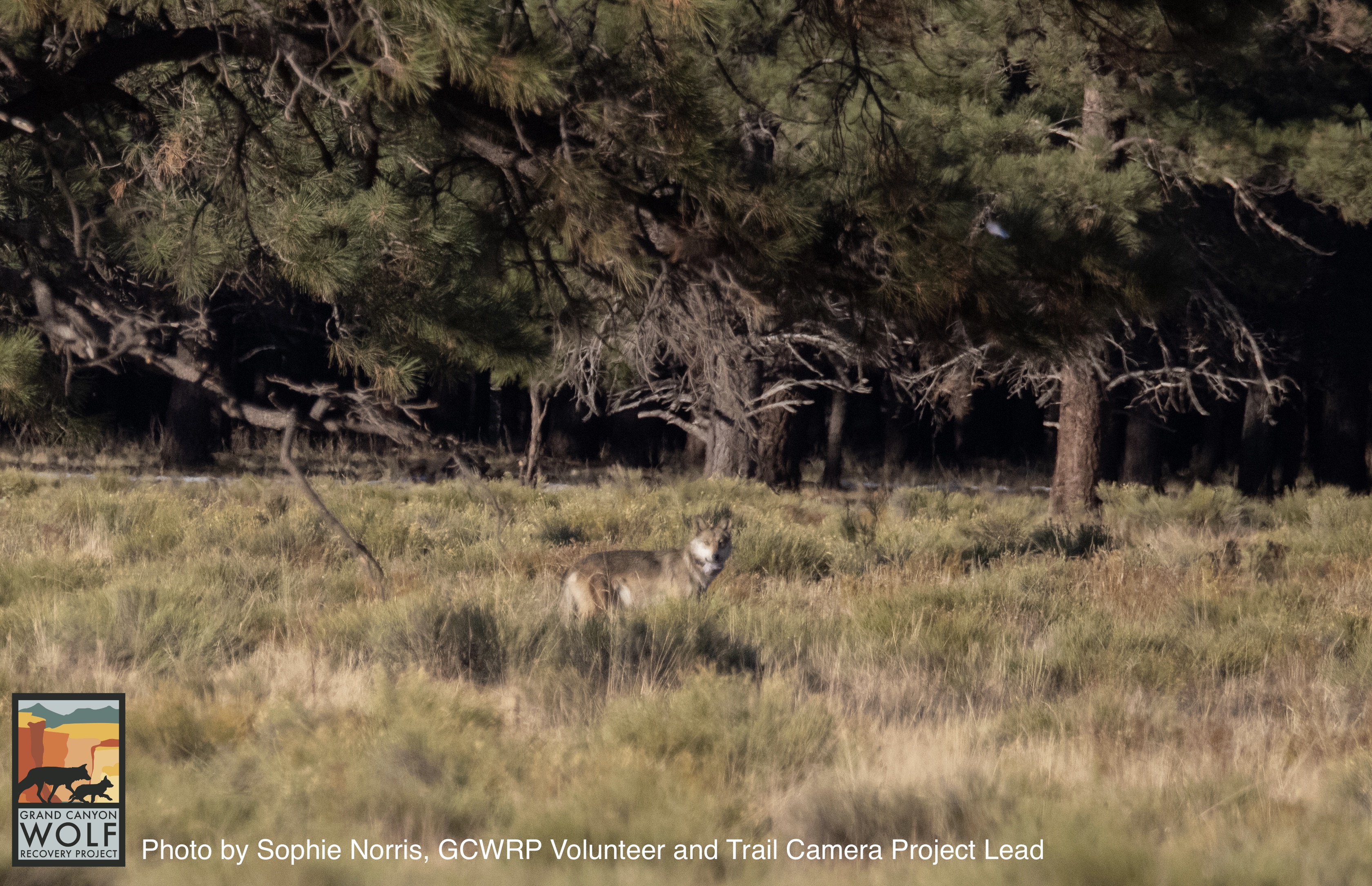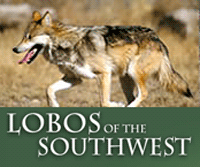For immediate release November 15, 2024
Media contacts:
Cyndi Tuell, Western Watersheds Project, 520-272-2454, This email address is being protected from spambots. You need JavaScript enabled to view it.
Sandy Bahr, Sierra Club - Grand Canyon Chapter, 602-999-5790, This email address is being protected from spambots. You need JavaScript enabled to view it.
Taylor McKinnon, Center for Biological Diversity, 801-300-2414, This email address is being protected from spambots. You need JavaScript enabled to view it.
Claire Musser, Grand Canyon Wolf Recovery Project, 928-202-1325, This email address is being protected from spambots. You need JavaScript enabled to view it.
Conservation groups demand justice after Mexican wolf near Flagstaff found dead
FLAGSTAFF, Ariz. – The U.S. Fish and Wildlife Service and Arizona Game and Fish Department announced today that Hope, a Mexican wolf living west of Flagstaff since at least June, was found dead on November 7th in the vicinity of Forest Service Road 2058 and East Spring Valley Road. No other details of her death were released and the incident is under investigation.
“Hope was a sentient individual being and a messenger of the changes needed in the Mexican gray wolf recovery program,” said Claire Musser, executive director, at Grand Canyon Wolf Recovery Project. “The territory she claimed north of Interstate 40 and outside of the official recovery area demonstrated that suitable and appropriate Mexican wolf habitat exists in northern Arizona. The federal and state agencies should be listening to what she had to say and allow wolves to become active agents in their recovery.”
“In every photo we saw of Hope, her collar was plainly visible. If she was shot, the shooter had to know she wasn’t a coyote,” said Cyndi Tuell, Arizona and New Mexico director at Western Watersheds Project. “If someone killed Hope, the full weight of the federal and state law should be brought to bear against the person or persons who took her away from our human community which found inspiration and joy in her existence, and from the non-human community that depends upon top predators to bring balance to the landscape.”
According to the announcement of Hope’s death, DNA analysis revealed she had dispersed from the Tu Dil Hil pack in the Mexican Wolf Experimental Population Area. Hope was seen traveling with another Mexican wolf, known as Mystery. Mystery’s fate is unknown.
Wolves like Hope and the Kendrick Peak pack had broad public support from the people in northern Arizona and beyond. In 2021, the City of Flagstaff passed a resolution supporting the recovery of Mexican gray wolves in northern Arizona in order to restore the natural balance of the land, and for the economic benefits from wolf-related tourism. Scientists have recommended that additional subpopulations be included in the recovery plan for Mexican gray wolves, including the Grand Canyon ecoregion and the southern Rockies of northern New Mexico and southern Colorado.
“If the investigation into Hope’s death reveals that a person killed her, we expect the Arizona Game and Fish Department to advocate for justice for Hope,” said Sandy Bahr, director for Sierra Club’s Grand Canyon Chapter. “When someone poaches an elk or kills the wrong species of deer, the Arizona Game and Fish Department immediately seeks help from the public to solve the crime and when the perpetrator is identified, the Department takes action. They have a trust responsibility for all of Arizona’s wildlife. We expect them to uphold that responsibility for Hope.”
“Hope embodied the dreams of so many here in Flagstaff, including the school children who named her, that wolves can return and restore natural balance to the Grand Canyon region,” said Taylor McKinnon, the Southwest director of the Center for Biological Diversity. “Anyone with information about this senseless death should report it so our elk-filled forests can once again thrive with the wolves who belong here.”
Mexican gray wolves are protected under the Endangered Species Act. Killing a Mexican wolf is a violation of the Federal Endangered Species Act and can result in criminal penalties of up to $50,000, and/or up to one year in jail, seizure of firearms, vehicles, and buildings involved in the crime, plus a potential civil penalty of up to $25,000. Individuals with information they believe may be helpful in solving crimes related to Mexican gray wolves are urged to call one of the following agencies: USFWS special agents in Pinetop, Arizona, at (346) 254-0515; or AZGFD Operation Game Thief at (800) 352-0700; or NMDGF Operation Game Thief at (800) 432-4263. There is a $103,500 reward fund for information about illegal killings of Mexican gray wolves.
Photos are available for media use upon request.

###





